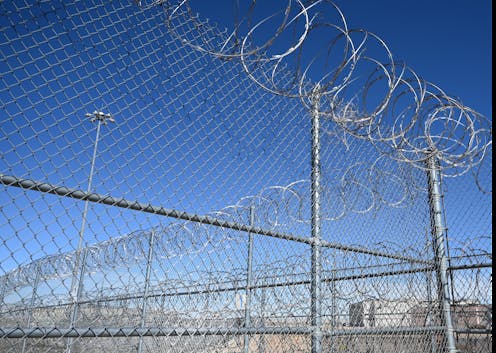Criminal justice researcher examines the needs of marginalized groups that often go ignored
- Written by Jennifer Cobbina-Dungy, Associate Professor of Criminal Justice, Michigan State University

As part of a new video series in which we ask an expert three questions about their work, The Conversation U.S. recently interviewed Jennifer Cobbina-Dungy[1], associate professor in the School of Criminal Justice at Michigan State University, about her research on the impact of the criminal justice system on marginalized groups. Her work emphasizes the needs of defendants in the criminal justice system, who she refers to as justice-involved people. Below are some highlights from the interview. Answers have been edited for brevity and clarity.
What do you study?
Jennifer Cobbina-Dungy: My research typically focuses[2] on the needs of marginalized groups. This includes Black and brown people and justice-involved individuals whose needs are often dismissed, ignored and overlooked. I’ve examined protesters’ attempts[3] to disrupt systemic racism through social movements.
Over the past few years, I’ve been particularly interested in how the Black Lives Matter movement has mobilized[4] [people] to stand up against state-sanctioned violence and systemic racism. I also look at women’s involvement in the correctional system[5] and the reentry process, particularly trying to better understand the aftermath of women’s convictions, their incarceration and release back to the community.
What sparked your interest in this work?
Jennifer Cobbina-Dungy: I remember being a graduate student and learning about the various systemic barriers that people who are justice-involved face, even after they’ve paid their debt to society. And I just remember thinking, “There’s got to be a better way,” particularly once people have served their time. I was flabbergasted by the number of structural barriers in place post-release. Basically, we as a society say that all is still not forgiven even after one has served their time behind bars.
What motivates you to continue the research in your field?
Jennifer Cobbina-Dungy: Trying to bring about awareness to how the system can make things quite difficult for marginalized individuals.
We often fail to think about the ways in which the system makes it challenging for people to go on with their lives[6] [once they have a felony criminal record], even after having served their time.
We often fail to consider the fact that many people who have caused harm have themselves also been harmed[7] [over the course of their lifetime]. And often these harms, these traumas, are unaddressed. If it’s unaddressed, individuals are more likely to resort to various substances[8] and deviant ways to kind of cope. And ultimately, it creates this vicious cycle in and out of this system because their trauma has not been addressed.
[Get the best of The Conversation, every weekend. Sign up for our weekly newsletter[9].]
References
- ^ Jennifer Cobbina-Dungy (cj.msu.edu)
- ^ My research typically focuses (doi.org)
- ^ I’ve examined protesters’ attempts (doi.org)
- ^ Black Lives Matter movement has mobilized (nyupress.org)
- ^ women’s involvement in the correctional system (doi.org)
- ^ people to go on with their lives (www.themarshallproject.org)
- ^ many people who have caused harm have themselves also been harmed (www.usatoday.com)
- ^ individuals are more likely to resort to various substances (onlinelibrary.wiley.com)
- ^ Sign up for our weekly newsletter (memberservices.theconversation.com)
Authors: Jennifer Cobbina-Dungy, Associate Professor of Criminal Justice, Michigan State University





